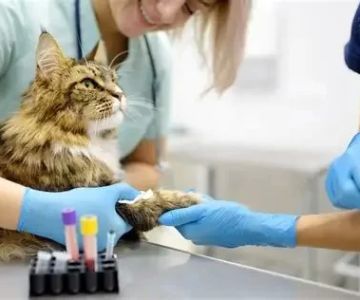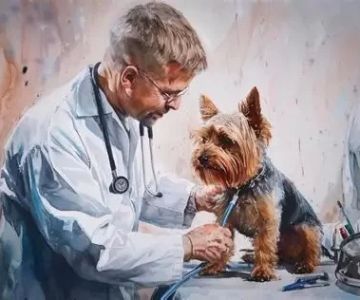- 1-understanding-kidney-disease-in-pets
- 2-signs-and-diagnosis-of-kidney-disease
- 3-nutritional-care-for-pets-with-kidney-disease
- 4-medications-and-treatment-options
- 5-daily-care-and-lifestyle-adjustments
- 6-real-stories-and-owner-experiences
- 7-finding-specialized-support-and-resources
1. Understanding Kidney Disease in Pets
Kidney disease is a common and serious health issue affecting many pets, particularly older cats and dogs. It involves the gradual loss of kidney function, which impairs the body's ability to filter waste and balance fluids. Understanding this condition is the first step in providing the best care for your furry companion.
There are two main types: acute kidney injury, which occurs suddenly, and chronic kidney disease (CKD), a long-term progressive condition. Knowing the difference can influence how you approach treatment and management.
1.1 Causes and risk factors
Kidney disease can result from infections, toxins, genetics, or age-related degeneration. Pets with other health issues such as diabetes or hypertension may also be at increased risk. Recognizing these factors helps pet owners stay vigilant and proactive in monitoring their pet’s health.
2. Signs and Diagnosis of Kidney Disease
Identifying kidney disease early significantly improves management outcomes. Common signs include increased thirst and urination, weight loss, decreased appetite, vomiting, and lethargy. However, these symptoms can be subtle initially and easily mistaken for other illnesses.
Veterinarians use blood tests, urinalysis, and imaging to confirm kidney function and disease progression. Regular check-ups are essential, especially for aging pets or those with predisposing conditions.
2.1 Importance of early detection
Early diagnosis allows for timely interventions that can slow the disease’s progression and improve quality of life. Pet owners should seek veterinary advice if any concerning signs arise.
3. Nutritional Care for Pets with Kidney Disease
Diet plays a crucial role in managing kidney disease in pets. Specialized kidney diets are formulated to reduce the workload on kidneys by limiting protein, phosphorus, and sodium while ensuring adequate calories and essential nutrients.
Feeding pets with kidney disease requires consistency and patience, as appetite changes are common. Sometimes, warming food or offering smaller, frequent meals helps encourage eating.
3.1 Tailoring diets to individual needs
Each pet’s condition is unique. Collaborating with your veterinarian to adjust dietary plans based on lab results and symptoms can optimize care and comfort.
4. Medications and Treatment Options
Besides dietary management, medications may be prescribed to control symptoms like nausea, high blood pressure, or anemia. Some pets benefit from supplements that support kidney health, such as omega-3 fatty acids.
In advanced cases, more intensive treatments such as fluid therapy or hospitalization may be necessary to stabilize the pet.
4.1 Monitoring and adjusting treatments
Kidney disease requires ongoing monitoring to adjust treatments as the disease progresses. Regular follow-ups with your veterinarian ensure the best personalized care.
5. Daily Care and Lifestyle Adjustments
Caring for pets with kidney disease extends beyond medicine and diet. Providing a calm environment, minimizing stress, and encouraging gentle exercise all contribute to wellbeing.
Hydration is vital; offering fresh water and sometimes wet food helps maintain fluid intake. Owners should also be alert to behavioral changes and communicate any concerns to their vet promptly.
5.1 Emotional support for pets and owners
The emotional impact of managing a chronic illness affects both pets and their humans. Patience, love, and attentive care go a long way in improving the pet’s quality of life.
6. Real Stories and Owner Experiences
Take Max, a senior dog diagnosed with chronic kidney disease, whose owner adjusted his diet and daily routine following veterinary guidance. Max’s energy improved significantly, and his quality of life was extended for years. Such stories underline the importance of comprehensive care and owner commitment.
Similarly, Bella the cat’s early detection and strict adherence to a kidney-supportive diet helped her maintain an active lifestyle, inspiring many pet owners online to prioritize kidney health.
6.1 Learning from others
These real-life experiences provide hope and practical tips for new pet owners facing kidney disease, emphasizing that well-informed care can make a difference.
7. Finding Specialized Support and Resources
For pet owners seeking expert advice and tailored products, Hidden Brook Veterinary offers specialized kidney care solutions, including dietary products and supplements designed to support pets with kidney disease.
Consulting with veterinary specialists ensures access to the latest treatment options and personalized care plans. Leveraging professional resources helps you provide the best possible care for your beloved pet.











